IN THE THIRD JUDICIAL CIRCUIT OF FLORIDA
Administrative Order No.
2009-004
IN RE:COURT REPORTING PLAN - Amends Administrative Order 2007-2016
WHEREAS, Rule 2.535 of the Florida Rules of Judicial Administration confers authority on the Chief Judge to develop a circuit-wide court reporting plan for court reporting of proceedings required to be reported at public expense; and
WHEREAS, the plan must ensure that all court reporting services are provided by qualified person; and
WHEREAS, official court reporting in the Third Judicial Circuit is managed and provided by the Administrative Office of the Court, Court Reporting Department; and
WHEREAS, the Third Judicial Circuit has transitioned into a multiple service delivery approach, which includes digital recording, as a means to ensure the efficient provision of court reporting services; and
WHEREAS, a new court reporting plan that delineates the multiple service delivery approach is warranted. Therefore, it is
ORDERED:
I. General Definitions:
A. Electronic Record: The audiotape or CD and any associated notes of any electronically recorded court proceeding made by CourtSmart or other electronic equipment owned with the Third Judicial Circuit.
B. Event: Any court proceeding including, but not limited to, a trial or hearing provided that the proceeding is one required to be reported at State expense.
C. Official Court Reporter: A stenographic or digital reporter employed or under contract with the Third Judicial Circuit.
D. Official Recording: The stenographic or transcribed electronic record of any event recorded by or at the discretion of the Court or Court Administration.
E. Original Transcript: The first transcription of any stenographic notes and/or electronically recorded record prepared in final form.
II. TRANSCRIPTS AND COURT REPORTER APPEARANCES
A. All transcripts must comply with Rule 2.535 of the Florida Rules of Judicial Administration. A non-party may order the transcript at his own cost after obtaining and prepaying the estimated cost for the preparation of the transcript. All expedited or daily rate transcripts require a court order.
B. A minimum fee of $50.00 shall be charged for the transcript of any court proceeding requested by a private party or parties. Transcription of court proceedings for all other entities may be provided only by the Court’s order. See attached Fee Schedule.
C. Transcripts prepared by the Third Judicial Circuit Court Reporting Department are the property of the Court. Attorneys requiring transcripts are to acquire them through the Court Reporting Department.
III. TRANSCRIPTION PROCEDURES
A. All transcripts must comply with Rule 2.535 of the Florida Rules of Judicial Administration. A non-party may order the transcript at his own cost after obtaining and prepaying the estimated cost for the preparation of the transcript. All expedited or daily rate transcripts require a court order.
B. Appeal transcripts are considered one original and two copies unless otherwise ordered by the Court.
C. No recording of court proceedings will be transcribed at public expense or transcript copies produced without court order. If ordered, the official court reporter shall transcribe the event and, when applicable, file the transcript pursuant to Rule 9.200(b) of the Florida Rules of Appellate Procedure 9.200(b).
D. Expedited or daily rates may not be provided without Court authorization. A court order authorizing expedited or daily delivery of transcripts must be secured before transcripts can be provided at public expense.
E. No requests for extension of time for transcript production may be submitted to the District Court of Appeal without first receiving the approval of the Trial Court Administrator.
IV. OFFICIAL RECORD
A. The official record of any event is the property of the Court and shall be maintained at a specified location, designated by Court Administration, in an organized manner for efficient retrieval. All notes and tapes must be submitted with invoice before processing for payment.
B. Court Administration is the official record keeper of all official recordings of court proceedings. The recordings shall be kept secure and retrievable for public records requests, consistent with a period of time established under Rule 2.535 of the Florida Rules of Judicial Administration. Recordings of death penalty cases shall be retained indefinitely and shall be marked for storage to indicate that the case is a death penalty case.
V. RECORDING OF COURT PROCEEDINGS
A. Stenographic court reporters shall be responsible for the reporting of all capital proceedings including capital post conviction proceedings. The stenographic record shall be the official court recording. Additional recordings made at the request of private counsel are not part of the official record.
B. Stenographic or digital court reporters may be responsible for the reporting of felony proceedings not defined in paragraph V(A) and termination of parental rights proceedings, at the direction of the presiding judge.
C. Digital court reporters shall be responsible for the reporting of misdemeanor, delinquency, dependency, crossover cases, child support enforcement cases, Jimmy Ryce, Baker Act, Marchman Act, guardianship, and domestic violence injunction hearings. The recording of these proceedings shall be the official recording.
D. Counsel for parties in all juvenile proceedings may elect to have a private court reporter present, at the expense of the party making that election. Electronically/digitally recorded juvenile records and written transcripts are exempted from public disclosure in accordance with Chapter 39, Florida Statutes. Additional recordings made at the request of private counsel are not part of the official record.
E. Reporting of all civil proceedings, civil or criminal depositions, and Grand Jury proceedings are not the responsibility of the court.
VI. PARTICIPANT FUNCTIONS AND EQUIPMENT
A. In order to ensure an accurate record of the proceedings using electronic recording equipment, all participants must comply with the following procedures:
1. All participants in a proceeding must identify themselves for the court, speak clearly into the microphone in order for the system to make an accurate record and ensure that microphones are on for all non-private communications. Other participants in the courtroom, including clerks of court, bailiffs, attorneys, and employees of the Court shall notify the Judge if a participant is not speaking with sufficient volume.
2. No one shall tamper with the microphones or electronic recording equipment. Court personnel shall immediately notify the judge when it appears that someone is tampering with or has tampered with the electronic recording equipment.
3. Bailiffs shall ensure that no one tampers with the microphones or electronic recording equipment and to the extent possible, shall notify the Judge if microphones or electronic recording equipment is not functioning properly.
VII. DUTIES AND RESPONSIBILITIES
A. Upon accepting employment, employees of the Court Reporting Department assume the responsibilities and duties of an officer of the Court.
B. Employees of the Court Reporting Department may not disclose directly or indirectly, orally or in writing, to anyone other than a party or a party’s attorney of record, information obtained through the performance of their duties unless specifically authorized by the Court. Confidentiality survives an employee’s termination.
C. Employees of the Court Reporting Department and contract court reporters will make an accurate and complete stenographic or digital record of events in criminal cases in the circuit and such other events as directed by the Court or Court Administration. Court reporters shall note in the record their name, the style of the case or event, the case number, the location of the proceeding, the date and time, the presence and/or absence of the defendant and, if applicable, the jury shall be noted after each recess. Court reporters shall simultaneously audiotape all proceedings reported. The court reporter shall produce true and accurate transcripts as required and will sign the certificate of every transcript required to be produced regardless of whether it is called an original or a copy.
D. Contract court reporters shall produce all recordings (audio, stenographic and/or paper) with submission of the invoice. Receipt of recordings are required prior to payment of the invoices.
E. The original transcript of a court proceeding, produced at public expense, shall be filed in the court files.
F. The official court reporter may be responsible for transcription of notes after employment ends, as requested by the Courts or Court Administration, and shall be paid at the rate provided for in this Order. Transcripts prepared after release of employment from the Circuit shall be delivered to Court Administration for distribution along with the notes within 45 days from the date the notes are released. Invoices for preparation of the transcript will be processed for payment upon receipt of recordings.
G. If transcripts are requested by and paid for by a private party, the former court reporter shall be responsible for distribution of the transcripts, billing, and collection of the funds due resulting from the preparation of the transcript. All stenographic notes and recordings must be returned within 45 days from the date the notes are released.
H. Full-time Court employed court reporters may not engage in private court reporting without specific approval of the Court Administrator.
I. Court Reporting Department employees are hereby empowered to administer oaths to witnesses at events when acting in the performance of their official duties.
J. This Order replaces Administrative Order 2007-016.
DONE AND ORDERED in chambers at Lake City, Columbia County, Florida this 19th day of February, 2019.

